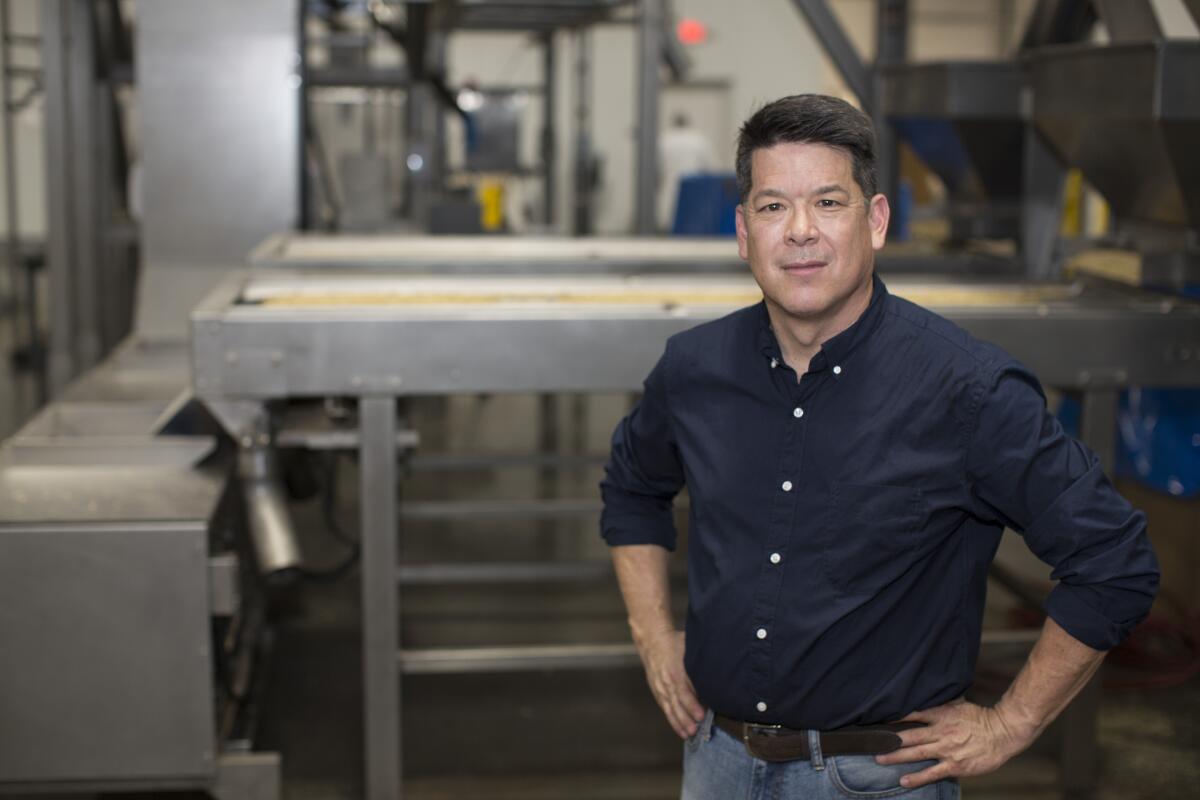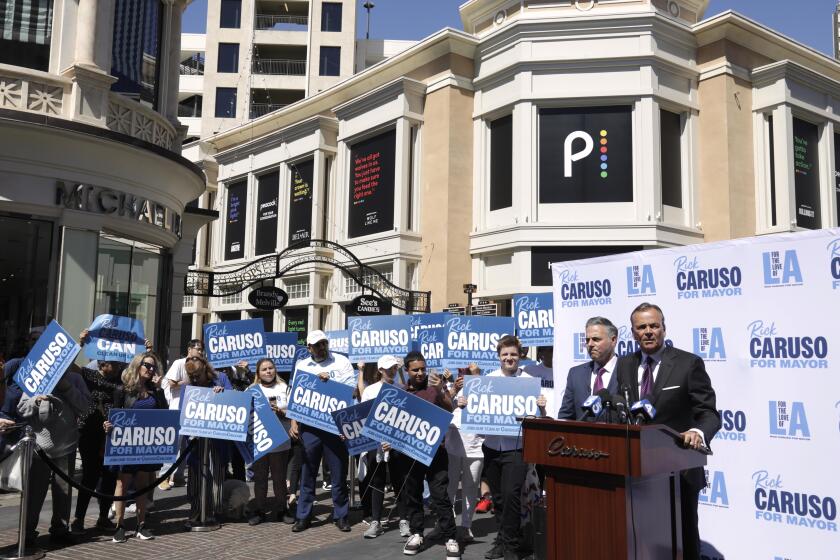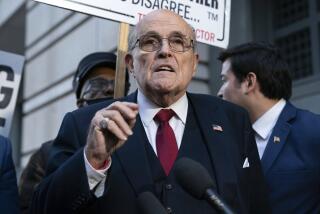Former Rep. TJ Cox of Fresno indicted on charges of fraud and money laundering

Former U.S. Rep. TJ Cox of Fresno was arrested Tuesday by the FBI after being indicted on charges of fraud and money laundering stemming from allegations that he stole from his own companies.
According to the unsealed indictment, Cox, 59, faces 15 counts of wire fraud, 11 counts of money laundering and one count each of financial institution fraud and campaign contribution fraud.
The indictment alleges that Cox siphoned at least $1.7 million from companies he owned into off-the-books accounts and used some of the money to fund more than $25,000 in illegal straw donations to his congressional campaign.
Cox, a Democrat, defeated Rep. David Valadao in 2018 to flip the Central Valley district from Republican control. He lasted a single term in office before losing the seat to Valadao in 2020.
He agreed to surrender to the FBI at the federal courthouse in Fresno, a spokesperson told the news station KSEE-TV, and was released from custody Tuesday evening after pleading not guilty. Court records show that Cox turned in his passport as a condition of his release.
“Politics is a tough game, and I wouldn’t be in this position today but for the politics,” Cox told KSEE.
He declined to answer further questions about the criminal charges.
Things appeared to return back to normal as the hours-long traffic to go through border checkpoints to the United States were back.
From 2013 to 2018, Cox diverted client payments and “solicited and then stole” company loans and investments in two fraud schemes, federal prosecutors said. The first involved a Fresno-based community development company owned by Cox and two others, which facilitated loans and investments into businesses in low-income areas by offering tax credits to lenders.
Cox started a second bank account using the company’s name without the knowledge of the other owners, diverted checks made out to the company into the second account, moved some of the money into accounts affiliated with another of his businesses, and deposited the rest into the firm’s actual account, prosecutors said in the indictment.
The alleged scheme took more than $1 million from the company and its clients, prosecutors said.
The second alleged fraud scheme involved an almond company that Cox became a partial owner of in 2012.
In 2015, Cox started a Wells Fargo account under the company’s name into which he diverted company investments and loans, prosecutors said.
“In some instances, no investment/loan funds were ever sent to the Almond processing company, but were spent on Cox’s personal and business expenses,” prosecutors said.
Cox is accused of causing losses of $750,000 to lenders and investors in the almond company.
The indictment also alleges that Cox lied to secure significant loan funds.
As a business partner in a Fresno sports nonprofit that applied for a $1.5-million construction loan to develop land in the city’s Granite Park, he fabricated a board resolution that stated his tax credit company would guarantee the loan, prosecutors said.
Their lawyers argue that because events in support of Caruso’s candidacy are allowed at the Grove, the public should also be allowed to engage in similar activity opposing his candidacy.
The loan was approved, but the sports nonprofit eventually defaulted, and the tax credit company bought the debt after Cox had left the company.
During his 2018 run for Congress, prosecutors said, Cox took money from the sports nonprofit and deposited it into the account of a family member, who donated to his campaign under another person’s name.
He also gave money withdrawn from the almond company’s fraudulent account to family members and others who would donate the funds to his campaign, the indictment alleges.
Additionally, Cox is accused of falsifying bank documents to show that he had enough money to qualify for a $315,000 mortgage for a home he intended to rent out and falsely stating that he would use the home as his primary residence.
To close the home purchase, Cox needed $43,000 and allegedly used a $46,600 payment from a client of his tax credit company to cover it via a cashier’s check.
If convicted, Cox faces a maximum statutory penalty of 20 years in prison and a $250,000 fine for wire fraud and money laundering, 30 years in prison and a $1-million fine for wire fraud affecting a financial institution, and five years in prison and a $250,000 fine for campaign fraud.
More to Read
Sign up for Essential California
The most important California stories and recommendations in your inbox every morning.
You may occasionally receive promotional content from the Los Angeles Times.













